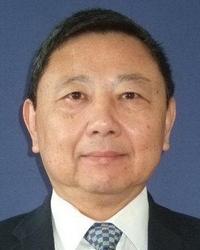Da-Wei Gu graduated from Department of Mathematics, Fudan University, and received M.Sc. degree in Applied Mathematics from Shanghai Jiao Tong University, both in China, in 1979 and 1981, respectively; and the Ph.D. degree in Control System Theory from Imperial College, London, U.K., in 1985. He was then a postdoctoral researcher in Oxford University. In 1989, he was appointed to a University Lectureship at the University of Leicester, and subsequently promoted to a Senior Lecturer, Reader and Professor. He is the Head of the Control Systems Research Group, Department of Engineering, University of Leicester.
Da-Wei Gu is a researcher of considerable breadth and talent who has an international reputation for his many research contributions in control system and control engineering. He is recognized in particular as an expert in the development of reliable computational techniques but he has also made deep and important contributions to the theory of robust control e.g. in the area of H-infinity super-optimal control.
Da-Wei Gu has broad research interests and strong mathematical skills which have enabled him to contribute in many areas and to collaborate with some outstanding international researchers. In his early career, he worked with Professor David Mayne FRS and more recently he has collaborated with Professors Petkov and Konstantinov from Bulgaria, recognized experts in numerical techniques. He has worked on several challenging problems, especially in the area of H-infinity super-optimal control where he showed great inventiveness in deriving an algorithm for the design of general (2-block) systems. He was also a co-author of Stable-H, the first commercially available design package for H-infinity control. He has published widely in the area of H-infinity control and has established himself as an authority on the computational aspects of robust control. To this end he has worked with leading figures in Europe and was a founder member of NICONET, an EU-funded network for the development of reliable software for control problems. Within NICONET he has co-authored Slicot, a library of subroutines which is widely used for control systems identification and design. Some of the subroutines are now available in Matlab which is one of the world’s most popular software packages in science and engineering.
Other research areas in which Da-Wei Gu has made significant contributions include loworder controllers design, multi-objective optimal design, strong stabilization and fault detection applied to rolling mills and other applications. He has close collaborations with research organizations such as QinetiQ (formerly DERA) and their equivalent in other countries such as FOI (Sweden), NLR (Holland) and DLR (Germany) and industry as well as with UK industry such as BAE Systems, VAI Industries and Alcoa. He is also a major contributor to the Garteur action groups on Autonomous Systems. Garteur stands for Group for Aeronautical Research and Technology in EURope; it includes all large aerospace
companies in Europe along with national research organizations and sets up action groups to work on important problems of the day. Universities with relevant expertise are invited to participate in these groups.
More recently, he is making significant contributions in coordinated control of unmanned air vehicles and in health monitoring/management of complex systems -of-systems. He has also independently developed a new line of research at the life sciences interface bringing together experts from Warwick, De Montfort and Sussex Universities to work with him on important modelling proble ms related to cancer tissue modelling and the early diagnosis of cancer.
His publication output is outstanding with more than 220 refereed papers and four books. He has maintained regular grant income since 1991 from EPSRC, EU and Industry, and he has been a co-investigator in generating larger sum grants, e.g. the recent EPSRC Platform Grant of £400,000 awarded to the Control Group and industry-related projects such as FLAVIIR, NECTISE, ASTRAEA. In the past year, he has obtained a major EPSRC/BBSRC award for his latest work on the modeling and identification of cancerous pancreatic islets using electrical impedance technology in addition to grants from EPSRC, BAE Systems and TRW Conekt.
In 1997, he was awarded a prestigious JSPS (Japan Society for the Promotion of Science) Fellowship to research at Sophia University, Tokyo. He has held visiting positions at a variety of universities in China, Hong Ko ng, Japan and Taiwan; he has been invited to serve on the editorial board of Control Engineering Practice and on the International
Programme Committees of many major conferences; and he has given many invited seminars and lectures worldwide.
Da-Wei Gu is a Fellow of IET (IEE) and a Chartered Engineer.

